According to a joint investigation by ProPublica and the Los Angeles Times, at least 22 people have died and another 250 have been injured and following a Border Patrol pursuit — in the last four years alone. It seems that an unfortunate side effect of the Trump administration’s current immigration policy (coupled with what the report describes as “the agency?s loose pursuit policies”) has been a drastic increase in Border Patrol chases, and subsequent accidents.
ProPublica found that agents during that span engaged in over 500 pursuits in border districts in Arizona, California, New Mexico, and Texas, and one out of three ended in a crash. So, can people injured in those crashes sue the government? Here’s a look at law enforcement liability generally, and who can be liable for police chase injuries.
Hot Pursuit
Unsurprisingly, the Border Patrol wasn’t forthcoming with details on chase and crash data. So reporters needed to piece together information from federal criminal complaints filed against suspected human smugglers. Those complaints have been increasing, as have the chases and subsequent injuries — up 42 percent over the last two years. According to the report, here’s how Border Patrol chases get started, and how they end up:
They initiate dangerous chases after noting that cars are carrying unrestrained children or are packed so far beyond capacity that the weight makes them ?ride low.? They catch up to find people screaming and banging from the insides of trunks …At speeds deemed by experts to be wildly unsafe, agents box in moving vehicles, puncture tires and employ tactics intended to spin cars off the road …Every nine days, on average, these chases end in a crash. One caused a fire that spread over more than 20 acres. Another injured a dozen bystanders and six immigrants, including a 6-year-old girl who wound up on life support.
Cold Light of the Law
So, can Border Patrol agents, or the agency itself, be held liable for crash injuries? Sadly, probably not. Law enforcement officials are often given broad governmental immunity in the discharge of their duties. Additionally, standard negligence claims require four elements:
- Duty: A owed another a legal duty to use reasonable care under the circumstances;
- Breach: That person breached that legal duty by acting or failing to act in a certain way;
- Causation: It was this breach that actually caused the injuries; and
- Damages: The injury is real and compensable.
And when it comes to police chases in particular, many courts have found that officers do not owe a duty of care to the suspects they are pursuing, much less that they’ve breached the duty during the pursuit. Some jurisdictions have found officers owe a duty of care to bystanders.
While it is possible that officers could be found liable for injuries if they violate an internal policy regarding pursuit, Pro Publica reports that the Border Patrol’s policy (unlike those of other law enforcement agencies) does not limit the kinds of offenses agents can use as justification for chases, and merely advises agents to pursue only when the “benefit of emergency driving outweighs the immediate danger.”
Suing the police in any instance can be a complicated process — different from the normal personal injury lawsuit — and requires the assistance of experienced attorneys. Contact one in your area today.
Related Resources:
- Find Personal Injury Lawyers Near You (FindLaw’s Lawyer Directory)
- What You Need to Know About Suing the Police (FindLaw’s Injured)
- In a Chase, Are You Liable for a Crash? (FindLaw’s Injured)
- What Can Police Do in a High-Speed Chase? (FindLaw Blotter)



